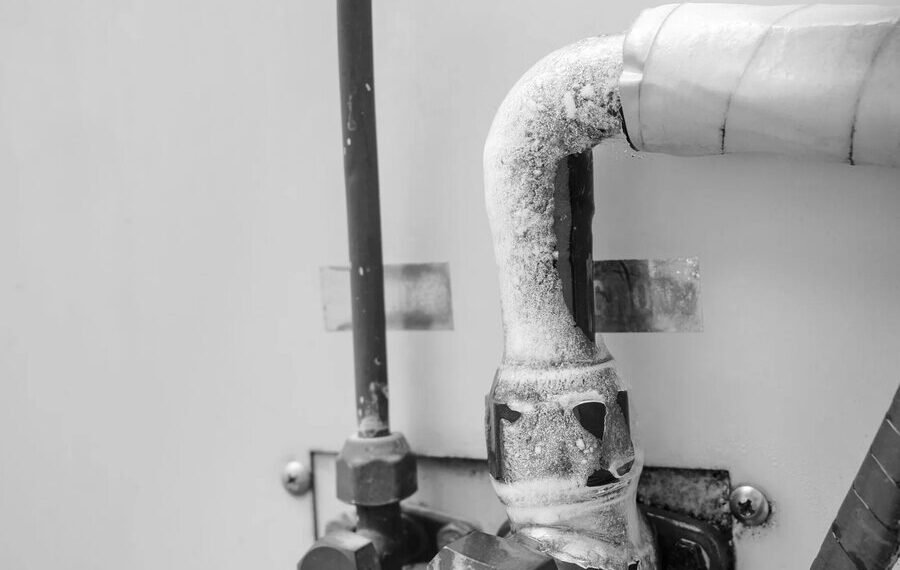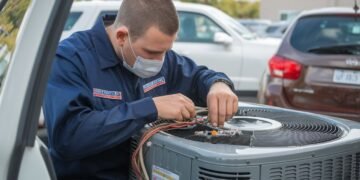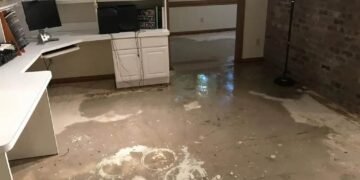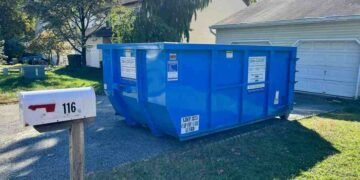Winters in Indianapolis can be harsh, and for homeowners, one of the most significant challenges is dealing with the risk of frozen pipes. Frozen pipes can lead to a host of issues, including bursts that cause water damage and costly repairs. This comprehensive guide provides essential tips for Indianapolis residents to prevent frozen pipes and what to do if they occur.
Understanding the Risk in Indianapolis
Indianapolis experiences frigid temperatures in winter, often dipping below freezing. This makes homes in the area particularly susceptible to frozen pipes, especially in unheated areas like basements, attics, and garages or where pipes are close to exterior walls.
Preventing Frozen Pipes
Insulate Pipes: Insulating your pipes is one of the most effective ways to prevent freezing. Focus on those in unheated or vulnerable areas. Hardware stores offer various pipe insulation options that are easy to install.
Seal Drafts: Prevent cold air from reaching your pipes by sealing cracks and openings in your home, especially where pipes run through walls or foundations.
Keep Thermostat Consistent: Keep your thermostat set at a consistent temperature day and night. Though it may increase your heating bill, it can prevent a much more costly pipe burst. Keep the thermostat set no lower than 55 degrees Fahrenheit to prevent pipes from freezing inside walls.
Let Faucets Drip: Allowing a trickle of water to run through the pipes can prevent freezing, as moving water is less likely to freeze.
Open Cabinet Doors: Open cabinet doors under sinks, especially those on exterior walls, to allow warm air to circulate around the pipes.
What to Do if Pipes Freeze
Despite your best efforts, pipes can still freeze in the extreme Indianapolis winters. Here’s how to respond:
Identify Frozen Pipes: If you turn on a faucet and only a trickle comes out, suspect a frozen pipe. Locations are likely to be against exterior walls or where the water service enters your home through the foundation.
Gently Thaw Frozen Pipes: If you can locate the frozen section, you can often thaw it using a hair dryer, a heating pad, or towels soaked in hot water. Never use an open flame, as it poses a significant fire hazard.
Keep Faucet Open: As you treat the frozen area, keep the faucet open. Running water will help melt ice in the pipe and relieve pressure that could cause a water pipe to burst
Call a Professional if Needed: If you cannot locate the frozen area, if the area is not accessible, or if the pipe has burst, call a professional plumber immediately.
Long-Term Solutions
To prevent future freezes, consider these long-term strategies:
Reroute Vulnerable Pipes: If certain pipes freeze consistently, consider having them rerouted by a professional plumber. This can be costly but can save money and hassle in the long run.
Upgrade Insulation: Improve insulation in your home, especially around basements, attics, and crawl spaces. This not only helps prevent frozen pipes but also improves overall energy efficiency.
Install Pipe Sleeve or Heat Tape: For pipes that are easily accessible, installing a pipe sleeve or using heat tape can provide extra protection against freezing.
Community Resources and Assistance
Local Workshops: Keep an eye out for community workshops in Indianapolis on winter home maintenance, including pipe insulation techniques.
Utility Company Advice: Local utility companies sometimes offer advice or services to help residents prevent frozen pipes.
Neighborhood Groups: Sharing experiences and tips with neighbors can be invaluable. Community groups or online forums are great places to exchange information.
Emergency Preparedness
Know Your Home’s Plumbing Layout: Familiarize yourself with the main water shut-off valve and the layout of your home’s plumbing. This is crucial in an emergency.
Emergency Supplies: Keep supplies like a hairdryer, towels, a bucket, and even a portable heater on hand for quick response to frozen pipes.
Emergency Contacts: Have a list of emergency contacts, including a plumber who can respond quickly in case of a burst pipe.
Conclusion
As winter sets in, Indianapolis residents must take proactive steps to protect their homes from the perils of frozen pipes. By implementing preventive measures, knowing how to respond to frozen pipes, and planning for long-term solutions, you can significantly reduce the risk of costly damage to your home. Stay warm and safe this winter, and remember, a little preparation goes a long way in preventing frozen pipe disasters.
















